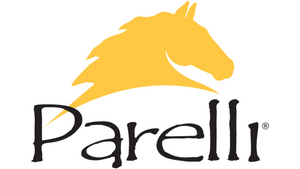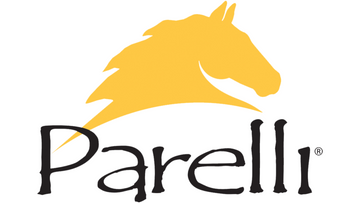
Recent Studies About Horses and Humans
The relationship between horses and humans feels natural. However, the complete depth of relationship possibilities is still being discovered. Certainly, each horse is an individual and some may never take to humans. However, early interactions help establish a healthy relationship. The best bonds come from positive interactions including confident leadership and the investment of time.
Horses Reciprocate Positive Feelings
Several case studies have been conducted to determine whether horses actually like humans. In one such study, researchers observed the behavior of horses in the presence of their human companions. The study found that horses showed positive responses to their human companions, such as nuzzling, licking, and following them around.
Horses Like Calm and Happy People
Another case study involved a horse named Bella and her human companion, Sarah. Bella was rescued from a neglectful situation and was initially fearful and untrusting of humans. However, after several months of patient and kind treatment from Sarah, Bella began to show affection towards her. Bella would nuzzle Sarah and follow her around the pasture.
Horses Remember Positive Associations
Several studies support the concept of horse memory. The three factors that affect memory are:
- Perception (Subject of the memory and how it affects the horse)
- Importance
- Repetition
Factors That Make Horses Dislike Humans
Horses have emotions and memories and develop trust. Several factors can cause a horse to dislike a person and this can carry over into relationships with other humans as well. These factors can be countered with time, but negative associations can last a lifetime.
Lack of Trust
As prey animals, horses are flight from fear animals and are naturally skeptical, especially of predatory behavior. Through negative interactions, horses develop a deepened sense of distrust. This distrust can be specific to a person or all humans. Generally speaking, horses will lose trust in humans when you lead them into danger. Moreover, horses will react very poorly to painful reinforcements.
Too Many Negative Interactions
We have established that horses create strong associations and memories. Negative experiences with humans will result in a horse that distrusts or even dislikes humans. Also, horses are receptive animals. If you project anger, fear, or any other negative emotion, your horse will reflect it.
When playing with or riding your horse, it’s important to learn to control your own emotions, whether they stem from fear, lack of confidence, or frustration. Developing emotional fitness, staying present with your horse in the moment, and knowing how to protect your confidence are vital skills you can learn through The Parelli Levels Program.
Making Poor Leadership Choices
Humans lead horses from the ground and from the saddle. If you lead your horse into scary or dangerous situations, without recognizing and respecting his thresholds, he will lose confidence. Good leadership will build a strong relationship. Without a strong leader, your horse could ignore your cues, responding inappropriately to pressure and putting you both at risk. In the horse/human relationship, you must be the leader, both to keep yourself safe and to have a positive and productive relationship.
Ensuring a Positive Relationship with Your Horse
Be the Leader Your Horse Wants You To Be
Horses are natural followers; they’re looking for a natural leader. Wild horses move as a herd with certain herd members in leadership positions. Leadership between a human and horse crosses the prey/predatory barrier and is built through bonding and yielding exercises such as the Parelli 7 Games. The horse who moves the other horse’s feet is the leader. We emulate this leadership when we play with our horses on the ground and riding.
Be a Consistent Leader
Horses are highly sensitive to body language and can pick up on even subtle cues. However, the quality of the interaction between a horse and a human depends on the human's ability to read the horse's body language and respond appropriately.
Overall, the bond between horses and humans is complex and multifaceted. While horses may not necessarily "like" humans in the same way that humans like other humans, they are capable of forming close bonds with their owners and responding positively to human interaction.
Stay Positive
Ensuring a positive relationship with your horse is essential for both the horse's well-being and the human’s enjoyment. Horses are social animals and thrive on positive interactions with their human counterparts. A positive relationship can lead to better communication, trust, and a deeper understanding between horse and rider.
One of the most critical components of a positive relationship with your horse is communication. Horses communicate primarily through body language, and human’s must learn to read and interpret their horse's signals. We must also learn to communicate to our horses in a way that they can understand so they know we’re asking them to do. The best place to start building this language is in Level One of The Parelli Levels Program.
Quality Time with Your Horse
Horses require proper care and attention to maintain their health and well-being. Humans who provide adequate care and show affection towards their horses can create a positive and trusting relationship. This can be achieved during regular grooming, feeding, and play sessions.
We also encourage horse owners to invest time building their horse’s emotional bank account with Undemanding Time. Rather than going out to the barn with an agenda in mind, occasionally invest time just being with your horse. See what he is curious about or interested in. Try not to ask anything of him during this time (unless you need to do something to stay safe!) Just see what your horse has to offer and enjoy being together.
In summary, the way humans treat and interact with horses can have a significant impact on their behavior towards humans. Building a strong bond between horse and human takes time, effort, consistency and a proven program to follow that builds a balance of love, language and leadership. Although it is quite an investment, we believe the relationship and the connection achieved between horse and human is well worth the effort.





